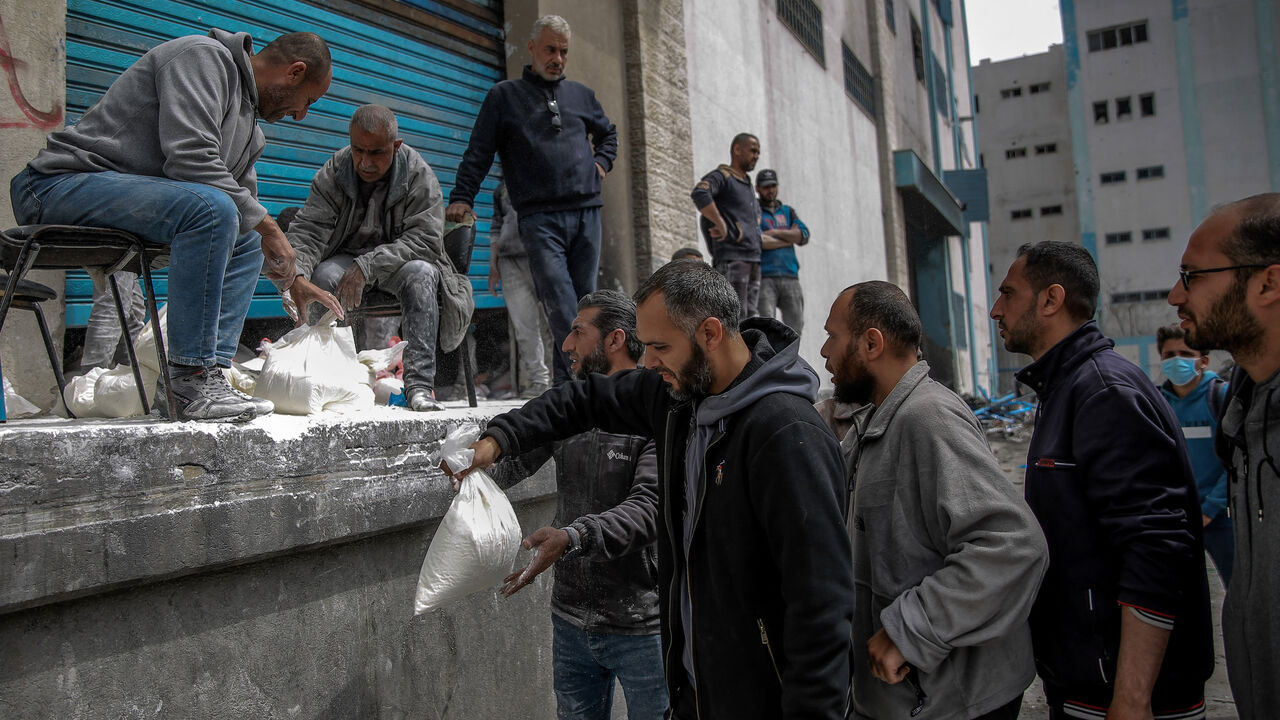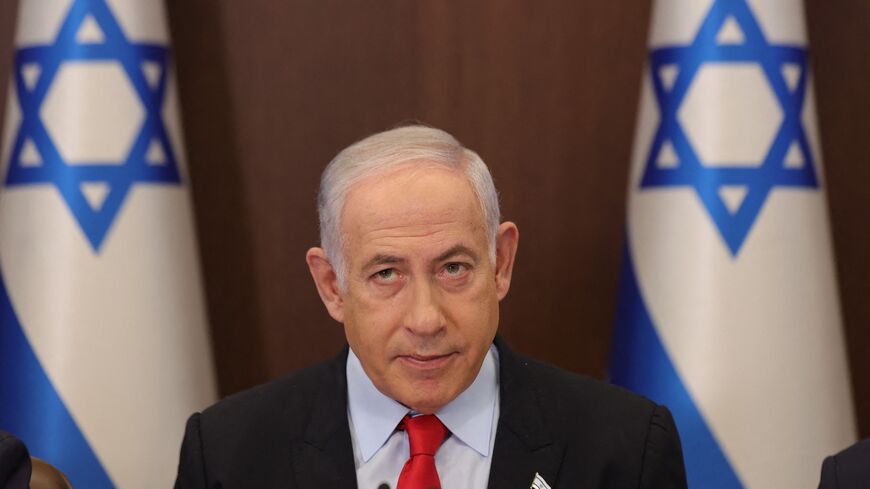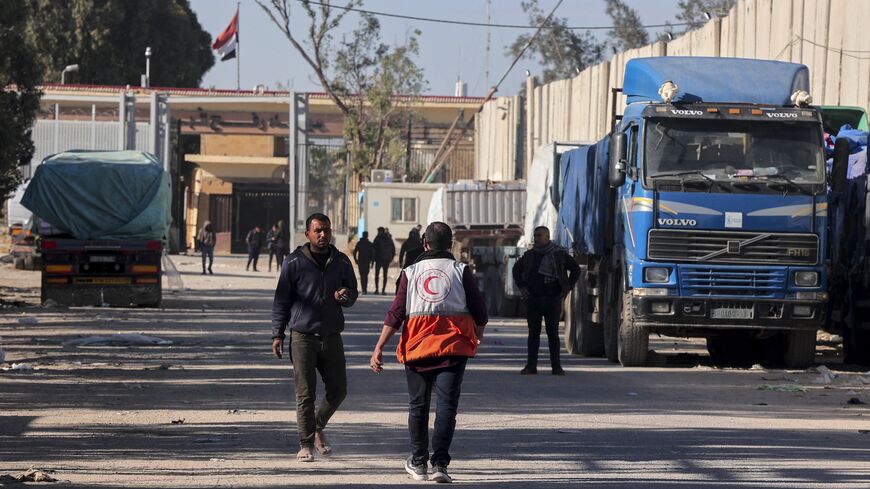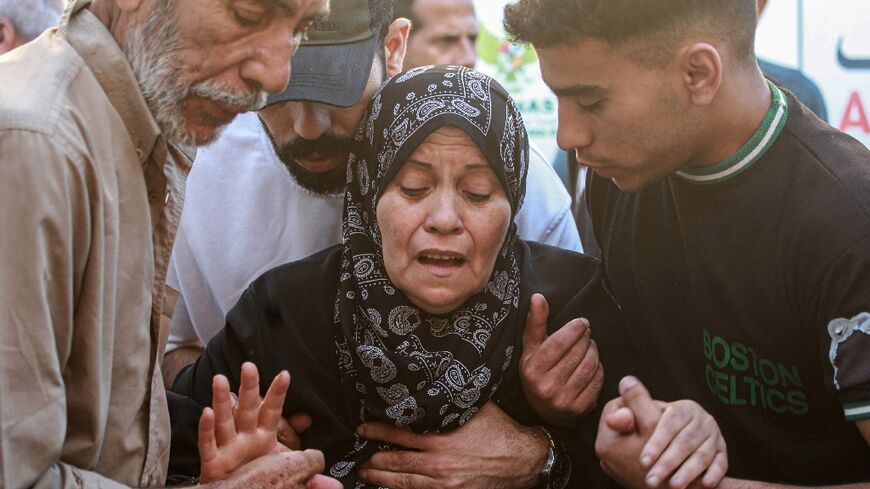Israel to reopen Erez crossing for Gaza aid after US pressure
The Israeli measure came after President Joe Biden warned that the US could revise its support if Israel did not protect civilians in Gaza.

Israel’s government announced on Friday that it will reopen a key border crossing with the Gaza Strip to allow for more aid into the besieged enclave for the first time since the war with Hamas erupted Oct. 7.
Prime Minister Benjamin Netanyahu’s office confirmed the temporary reopening of the Erez border crossing with northern Gaza as well as the Ashdod port about 40 kilometers (25 miles) north of Gaza, along with an increase of aid coming from Jordan via the Kerem Shalom crossing in southern Gaza.
“This increased aid will prevent a humanitarian crisis and is necessary to ensure the continuation of the fighting and to achieve the goals of the war,” a statement from his office read.
The measures were approved during a meeting of the Israeli security cabinet late on Thursday, hours after a tense phone call between Netanyahu and US President Joe Biden.
During the call, Biden condemned the Israeli strikes on humanitarian workers in Gaza as “unacceptable” and called for an “immediate cease-fire” to guarantee the protection of civilians.
According to a White House readout of the call, Biden further threatened to make changes to US support for the Israeli campaign in Gaza unless Israel announces “concrete, and measurable steps to address civilian harm, humanitarian suffering, and the safety of aid workers.”
“He made clear that US policy with respect to Gaza will be determined by our assessment of Israel’s immediate action on these steps,” the readout added.
The US administration welcomed the Israeli steps and said they must “now be fully and rapidly implemented.”
National Security Council spokesperson Adrienne Watson said in a statement that the United States is ready to work with the governments of Israel, Jordan and Egypt as well as the United Nations and humanitarian agencies to ensure that assistance reaches civilians across Gaza “in the coming days and weeks.”
Israel has been facing mounting pressure to halt its war in Gaza, which has killed more than 33,000 people, according to local health authorities. The recent killing of seven aid workers in an Israeli strike on Deir al-Balah in central Gaza earlier this week has caused international outrage and further increased pressure on Israel.
The humanitarian situation has also worsened in light of the Israeli siege and its relentless bombardment on the enclave. Israel has tightened its blockade on Gaza and closed all border crossings with the territory following Hamas’ surprise assault on southern Israel Oct. 7, during which militants killed some 1,200 people and took over 240 others hostage.
Israel and Egypt have maintained a tight seal by land, air and sea on the Gaza Strip since Hamas took over the enclave in 2007 following the expulsion of the Palestinian Authority. The entry of goods and the movement of people have been severely limited and controlled since then, making Gaza the world’s largest open-air prison, according to rights groups.
Before Oct. 7, people would use the Rafah border crossing with Egypt in the south and the Erez crossing (called Beit Hanoun on the Palestinian side) with Israel in the north. Goods moved through the commercial Karem Abu Salem crossing (called Kerem Shalom on the Israeli side) in the south.
In December, Israel agreed to temporarily reopen the Karem Abu Salem crossing to facilitate aid deliveries from Egypt into Gaza. The crossing appears to still be open despite frequent disruptions to the entry of aid convoys caused by protests on the Israeli side demanding the release of the hostages still held inside Gaza. In March, a shipment containing 40 tons of humanitarian aid provided by Morocco crossed into Gaza via Karem Abu Salem.
Meanwhile, aid has been entering Gaza via the Rafah crossing that reopened shortly after the war erupted in October. But UN and rights agencies have repeatedly said the aid is not enough to meet the growing demands of the Gaza population and accuse Israel of blocking aid access.
In a joint report released Tuesday, the UN, European Union and World Bank warned that more than half of Gaza’s total 2.3 million people is “on the brink of famine and the entire population is experiencing acute food insecurity and malnutrition.”
Around 1.7 million people have been displaced from their homes in Gaza, according to UN figures.









